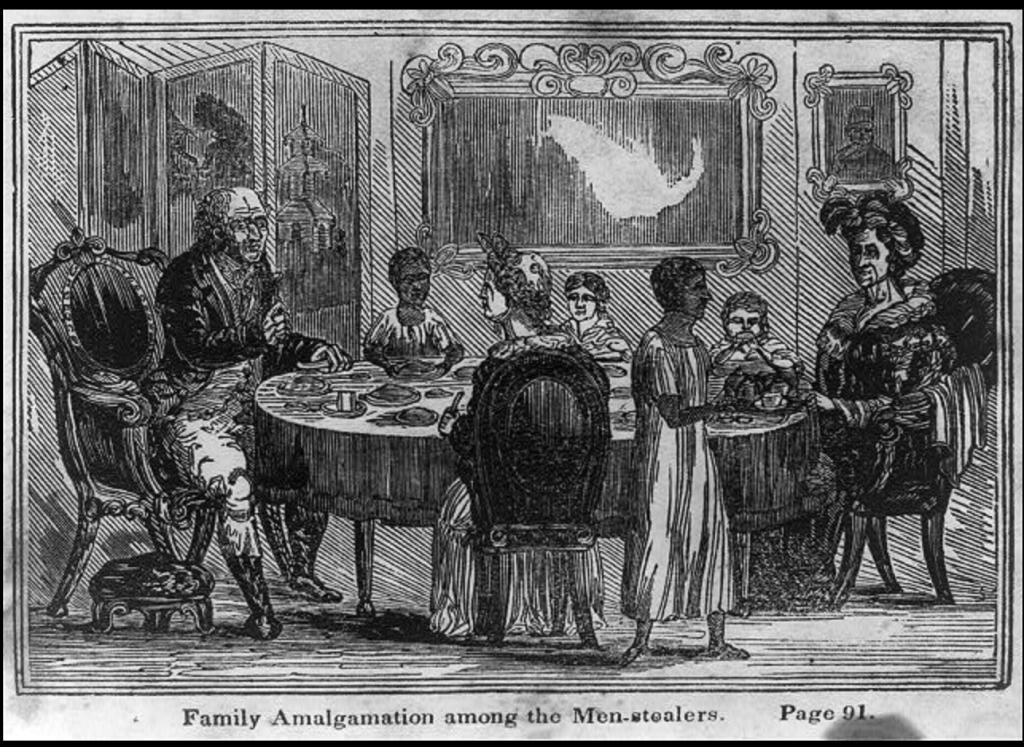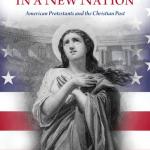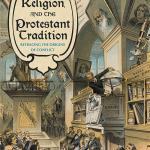A recent post at this site concerned the history of American slavery, and like many other works on that subject, it quoted a New Testament verse that condemns “menstealers.” (1 Timothy 1: 9-10 KJV). I say right away that I am making no comment or criticism here about the post in question, but that particular word did intrigue me, as it raises all sorts of questions about translation and usage, and how we are to understand the earliest Christian attitudes to slavery. I’ll tell the story of how a condemnation designed to defend the smooth workings of a slave society was transformed into an outright denunciation of the institution of slavery itself. The story does raise questions about how later generations should use Biblical terms, and how concerned they should be to preserve what we might call Original Intent.
Here is the passage in question:
The Law is not made for a righteous man, but for the lawless and disobedient, for the ungodly and for sinners, for unholy and profane, for murderers of fathers and murderers of mothers, for manslayers, for whoremongers, for them that defile themselves with mankind, for menstealers, for liars, for perjured persons.
Now, it is easy to glide over the menstealers word, because so much attention on that verse in recent decades has focused on the very contentious word here rendered as “for them that defile themselves with mankind,” which we might or might not translate as “homosexuals”; but that, as we say, is a different story.
So what does menstealers mean? It is an odd word in English, and most uses of it track back to the Timothy passage. The Greek word is andrapodistais, singular andrapodistes, ἀνδραποδιστής. It comes from the roots for “man” and “foot,” meaning someone forced to be at the feet of another. Exactly what it means in this context is open to debate. Strong’s Concordance gives “an enslaver, one who forcibly enslaves, a kidnapper.” Thayer’s Lexicon ranges more widely: “a slave, a man taken in war and sold into slavery, a slave-dealer, kidnapper, man-stealer, i. e. as well one who unjustly reduces free men to slavery, as one who steals the slaves of others and sells them.”
It is definitely something to do with slaves and slavery, but what exactly? At first sight, to modern eyes, it seems to denounce those who seize or trade slaves, and as such, it looks like a ringing denunciation of slavery as such. But assuming for the sake of argument that is correct (and as I will show, it is not), then that offers literally the only example in the whole New Testament of a condemnation of the institution of slavery as such. Words for “slave” are very frequent in the text, and in every case, the assumption is that this is a normal condition that is part of the cultural air that people breathe. It is not that the New Testament writers favor slavery, they just don’t or can’t imagine a world without it, at least before the final Judgment. We lose that understanding because of the number of times that translators render the word as “servant” rather than slave, which is incontestably what it means. If you look at the prosperous believers identified in New Testament texts such as Acts, those individuals would assuredly have owned slaves in abundance: that would certainly have been true of someone like Paul’s well-off friend Lydia. If you think she gave up those slaves when she joined the new Jesus Movement, you are deluding yourself. Ditto for Luke’s correspondent Theophilos.
When the US was divided over slavery in the years leading to the Civil War, each side sought to buttress its position by finding Biblical texts, cherry picked for the cause in question. Pro-slavery activists found a rich haul in the New Testament, and they loved Colossians 3, Ephesians 6, and Titus 2, all of which urged slaves to be faithful and submissive to their masters, and enthusiastic about their labor. According to the ideas of the time, each of these commandments came from Paul personally. To the contrary, abolitionists could find very little useful to them in the New Testament, as opposed to the Old. Actually, the main exception to that statement was the 1 Tim0thy verse I am discussing here. But were they reading it accurately?
I won’t go into more detail about that New Testament context right now, but next time I will be presenting an updated and expanded version of a post I did some years ago about those Christian views of slavery. And how, more to the point, they cause unceasing agony for modern-day translators. For the present, bear with me.
So how do we translate andrapodistais? The NIV gives “slave traders,” but that is clearly wrong, for two reasons. As I say, the New Testament as a whole does not attack slavery or slave trading. And also, the context in 1 Timothy has to go beyond just someone involved in the regular and standard operation of the slave trade as it would have existed throughout the Mediterranean world at the time. Later on in that same epistle, the author calls on slaves to obey their masters faithfully, particularly if the masters are also believing Christians (1 Timothy 6.1-2). If we look more closely at the “menstealers” passage, then each of the other types of wrongdoing listed suggests law-breaking of various kinds, and regular slave traders were in nothing like that category. The word must imply not just slave trading, but slave trafficking in some form that is illicit or unacceptable, which stands clearly outside approved social norms, and particularly conduct that is carried out in secret. It might mean kidnapping, or suborning a slave away from his or her proper loyalty.
To understand what is envisaged here, I offer a possible scenario, and certainly not the only possibility. A slave owner has freed a man or woman, who achieves the well-defined status of freed person. Some sinister criminals kidnap him or her and sell that person back into slavery, and thereby become “man-stealers.” If the story sounds familiar, it is what we know from the famous American memoir Twelve Years a Slave (1853),which became a fine film in 2013. Such an abduction has nothing whatever to do with the normal and regular practice of slave ownership or trading, or what would, according to the ideas of the time, be thought of as rightful ownership.
Yes, I know how bad that sounds: “illicit” slave trading, rather than nice, regular, normal slave trading. It is almost like talking about illicit genocide, as opposed to the acceptable version. But that is what the context demands. The text here assuredly does not imply a condemnation of slave-ownership itself.
When I face a difficult translation issue in the New Testament, I often turn to the fourth century Vulgate Latin of Jerome, not because that is impeccable in every instance, but because it gives a great idea of how people read the text in a society very similar indeed to that in which it was written – in this case, a slave society. If I use that method here, I see an interesting expansion of the behavior condemned. Jerome’s translation of the word is plagiariis, which can mean an act of theft, as in plagiarism, but here, it is a very specific legal term, related to the act of plagium. Please excuse the legalese in what follows, but the general sense is clear. Plagium was forbidden under the Lex Fabia:
if a freeman concealed, kept confined, or knowingly with dolus malus purchased an ingenuus or libertinus [a free or freed person] against his will, or participated in any such acts; or if he persuaded another person’s male or female slave to run away from a master or mistress, or without the consent or knowledge of the master or mistress concealed, kept confined, or purchased knowingly with dolus malus such male or female slave, or participated in such acts, he was liable to the penalties of the Lex Fabia.
Depending on the context, the term dolus malus means something like evil deceit, evil intent, or bad faith.
The provision of the Lex Fabia meant either forcing a free person into slavery, or else stealing a slave. (In case it is not obvious, the law wholly applies to free and freed people under the protection of Roman law and power, rather than to barbarians and foreigners). That “stealing” would include aiding and abetting slaves to run away from their masters. The concept totally assumes the normality and rightness of regular everyday slavery, and just condemns illicit or clandestine practice. The issue is not slavery, but theft.
It’s sobering to think that under that legal code, the whole American Underground Railroad would have constituted a massive example of “men-stealing,” a whole crime wave of plagium.
The Lex Fabia dated from the second century BC, and it would certainly have been in force at the time of the writing of 1 Timothy, whether we assign that to the first or second centuries AD.
That specific legal context no longer applied when English scholars were undertaking their own translations a millennium later. Unless I am missing it, the word is not even translated in Wycliffe’s rendering of 1382: maybe he found it too much of a challenge, and gave up. Luther gave Menschendieben, or Thieves of Men, which suggests the kind of illicit or underhand behavior I am talking about. He obviously knew the Vulgate, and surely recognized the technical Roman legal context. As so often, William Tyndale relied heavily on Luther, and duly produced “menstealers” as a straight translation of that, which the KJV then followed.
As I say, I am referring throughout to the original New Testament setting and context, rather than more modern expansions and reinterpretations. When abolitionism developed in the Anglo-American world from the 1770s onward, the word, and the 1 Timothy passage, acquired a whole new life as a straightforward description of anyone involved in the slavery system, in any way whatever, not just in an “illicit” sense. That certainly, and centrally, included slave-owners, which marked a dramatic rhetorical escalation. “Men-stealers” entered the abolitionist vocabulary as a standard label for their enemies. Coming as it did from 1 Timothy, it seemed to contradict those other poisonous texts attributed to Paul, in Ephesians and elsewhere. It was a way of doing an end-run around the Paul beloved of the slaveholders.
A couple of examples will suffice. In 1846, Frederick Douglass delivered a rousing speech on “American Slavery and Britain’s Rebuke of Man-Stealers“:
England was deceived in supposing that the Christian religion exists in the southern states of the Union. It was known there only in name. He had seen men-stealers, class-leaders and preachers. His own master was a class-leader, and he had seen him tie up a young woman, expose her, lash her back till the warm blood would trickle at her feet, and would quote scripture in support of his cruelty. He had known church members in America who were man stealers.
Man-stealers here is a straightforward synonym for slave owners. Legendary Baptist preacher Charles Haddon Spurgeon earned the deadly enmity of pro-slavery Southerners by declaring that “I would as soon think of receiving a murderer into my church . . . as a man stealer.” After John Brown’s raid, William Lloyd Garrison said, “God forbid that we should any longer continue the accomplices of thieves and robbers, of men-stealers and women-whippers!” See also various books and polemic pamphlets, such as George Bourne, Man-Stealing And Slavery Denounced By The Presbyterian And Methodist Churches (Boston : Garrison & Knapp, 1834); or P. J. Randolph, The Slave-Mongers’ Convention : A Satire On American Despotism, And Men-Stealing Religion (Sank Co, Wisconsin, 1861).
However powerful the rhetoric, each of these uses of the specific word travels a very long way from the text’s original meaning, which actually assumes the normality of a slave society. By the abolitionist standard, Lydia and Theophilos would assuredly have been men-stealers. By the standards of the original writer of 1 Timothy, they evidently were not.
Translation can be a delicate business. Or as it says in Latin, Omnis traductor traditor – Every translator is a traitor.
Here is a question that I find interesting. In the modern West, basically everyone is likely to think that slavery is utterly wrong everywhere and everywhen, in all times and places. The writers of the New Testament did not share that sentiment. Is it legitimate and proper, then, to read and even translate those original texts in a way that reflects modern sensibility? Or should we present the text as it stands, with its original meaning, and acknowledge that this was a different world, where people lived and thought differently?
And if we do that in the instance of slavery, can and should we do that for virtually any other topics where such a cultural gulf exists? To take a notorious example, should we be publishing new Bibles in which Paul declares that “Let your women NOT keep silence in the churches: for it IS permitted unto them to speak”? Hmm… Obviously I don’t think such a thing, but that is a logical consequence of what we do to the Bible’s slavery texts.














